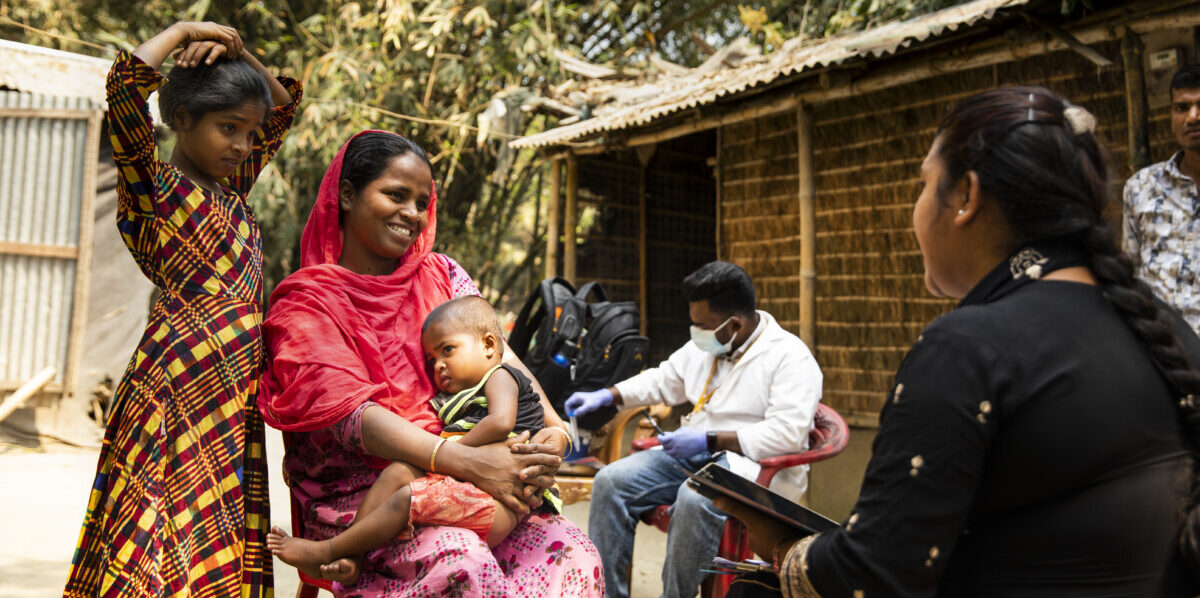Pure Earth is making strides towards solving lead pollution in low- and middle-income countries around the world.
Scroll below to see the progress we’ve made since our work began 25 years ago and insights into the steps needed to effectively address lead poisoning in each country.
Ghana
2020-2023: National Blood Lead Level Survey in Children Ages 1-5
Pure Earth Ghana, Ghana Health Service, the Ghana Standards Authority, and UNICEF conducted one of Ghana’s largest ever blood lead level testing and home-based assessment programs, surveying children ages 1–5 across 3 regions. 53.5% of 3,227 children had blood lead levels > 5 μg/dL. Metal cookware, traditional eyeliner (“chilo”), and industrial pollution were found to be major exposure sources.
2007- present: Toxic Site Identification Program
Since forming a collaboration with the Ghana EPA in 2007, Pure Earth has conducted 174 toxic site assessments through our Toxic Site Identification Program.
2021-2023: Rapid Market Screening research

Pure Earth analyzed lead in samples of consumer products and foods across four regions in Ghana. 10% of samples exceeded relevant reference levels. Metal cookware, ceramics, toys, and cosmetics are most lead-contaminated.
2010-2014: Agbogbloshie: E-waste recycling solutions
Pure Earth worked with Ghana to launch a pilot project to create a safer and more efficient e-waste recycling infrastructure to strip wires instead of burning them.
2020-2023: Protecting Every Child’s Potential (PECP)
Launched in 2020, the Protecting Every Child’s Potential initiative (PECP) was a public private partnership between Pure Earth, UNICEF, and Clarios Foundation focused on raising awareness of the impact of lead exposure on children’s long-term health and developing and mobilizing action to abolish dangerous practices that cause harmful lead exposure in Bangladesh, Georgia, Ghana, India, Indonesia, Mexico, and the Philippines.
Current Project: Cleaning up contaminated sites
Pure Earth Ghana is conducting detailed assessments of contaminated sites from former lead recycling facilities.
2020-2023: Protecting Every Child’s Potential (PECP)
Launched in 2020, the Protecting Every Child’s Potential initiative (PECP) was a public private partnership between Pure Earth, UNICEF, and Clarios Foundation focused on raising awareness of the impact of lead exposure on children’s long-term health and developing and mobilizing action to abolish dangerous practices that cause harmful lead exposure in Bangladesh, Georgia, Ghana, India, Indonesia, Mexico, and the Philippines.
2019: Health and Pollution Action Plan
Ghana created a Health and Pollution Action Plan using pollution data from the 2017 Lancet Commission on pollution and health. The plan provided a framework to prioritize pollution challenges & actions using pollution and health data.
2023: National Declaration and Action Plan
Pure Earth and UNICEF worked with the Ghana Health Service on a “Declaration of National Action to Prevent Lead Poisoning”, which established a multi-sector government lead reduction program and prioritizes pollution from ULAB recycling industries among other sources.
Current Project: Implementing National Action Plan
Pure Earth Ghana is working with the Ghana Health Service and UNICEF to begin implementing the National Action Plan against lead poisoning in Ghana.
How Pure Earth Prioritizes Locations
Pure Earth prioritizes locations for long-term investment based on quantitative and qualitative factors. We start with a quantitative assessment of the “need case” across countries. Since Pure Earth works on lead and mercury, we analyze the need case for both chemicals. Pure Earth may ultimately prioritize a country based on the need case for either lead or mercury, and thus orient the country office portfolio toward that chemical (e.g. our Bangladesh and India offices work only on lead). In some cases, there is a strong case for working on both. Learn more about how Pure Earth prioritizes locations.


